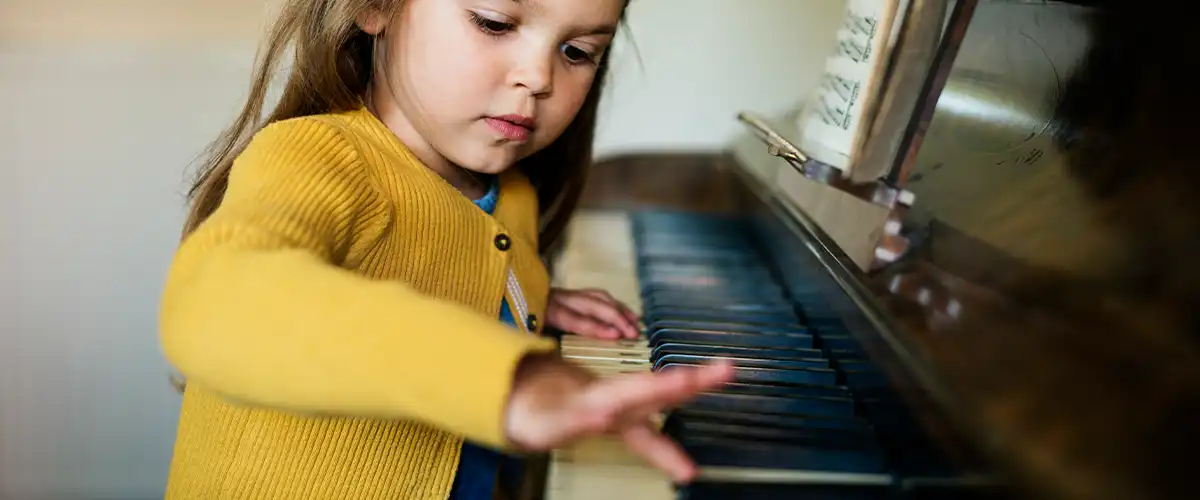Have you ever wondered if music is missing from your homeschool curriculum? If so, you’re not alone. Music is an incredibly powerful tool that can enrich your child’s education in ways you might not expect. I’ve always believed that music is more than just a subject; it’s a form of expression, a way to communicate emotions, and a skill that can be learned and enjoyed throughout life. In our homeschool, we’ve seen firsthand how incorporating music has sparked creativity, enhanced emotional development, and provided a joyful outlet for my kids. From simple instruments like bells and drums for young children to formal music lessons as they grow older, integrating music into our daily routine has been both fun and transformative. Let’s explore how you can do the same for your child and why it’s worth the effort.
Table of Contents
Is Music Missing from Your Homeschool Curriculum?
Benefits of Music in Homeschooling
Emotional Expression
Music is a powerful tool for emotional expression in our homeschool. I teach my kids that music is like poetry, a language that conveys emotions and tells stories. Through playing instruments and sometimes creating their own songs, they learn to express feelings they might not have words for. This practice helps them understand and manage their emotions, providing a creative outlet that is both therapeutic and joyful.
Creativity Boost
Integrating music into our homeschool routine significantly boosts creativity. While I do maintain a disciplined and consistent practice schedule, I set aside time to encourage experimentation with different styles and sounds, turning practice into a fun, exploratory activity. This playful approach fosters their imagination, allowing them to create unique musical pieces and think outside the box. Music, much like art, gives them the freedom to explore their creative potential.
Cognitive Development
Music also plays a crucial role in cognitive development. I’ve noticed how learning to read music, understanding rhythms, and practicing instruments enhance my kids’ memory, attention, and problem-solving skills. These cognitive benefits extend beyond music, aiding in their overall academic performance. Through consistent practice and engagement, music becomes a foundational element that supports their intellectual growth.
Starting Young with Simple Instruments
Begin with Basic Instruments
Starting with basic instruments like bells, drums, and tambourines is an easy and enjoyable way to introduce young children to music. These simple instruments are perfect for little hands and make it easy for kids to explore sounds and rhythms. In our homeschool, we began with these basics, allowing the kids to bang, shake, and jingle to their heart’s content. This early exposure not only sparked their interest in music but also laid the groundwork for more structured musical learning later on.
Keeping It Playful
The key to developing a love for music is to keep it playful at this early stage. Sure, it can sound like a lot of noise, but kids love that, and we want them to feel love for music. In our homeschool, we make sure music sessions are fun and engaging, encouraging the kids to experiment without the pressure of perfection. This playful approach helps them associate music with joy and freedom, which is essential for nurturing a lifelong passion for creative expression.
Progressing to Formal Music Lessons
Transition to Formal Lessons
As your child grows and their interest in music deepens, transitioning to formal music lessons is the ideal next step. Music is fun, but it’s also something that required discipline. Starting formal lessons is a way to inject some discipline and consistency, and give them a sense of responsibility.
In our homeschool, we found that starting with simple instruments made this transition smoother. Choose an instrument that excites your child and that you are also excited for them to learn, and find a teacher who encourages creativity while providing structure. When selecting an instrument, do some searching to ensure there are local schools or teachers available for that instrument.
Formal lessons help children develop technical skills and understand musical theory, enriching their musical journey. This step is about building on their foundation, giving them the tools to express themselves even more fully.
Consistency is Key
Consistency is crucial in nurturing any skill, and music is no exception. Regular practice helps children develop discipline and persistence.
In our homeschool, we make music a part of our daily routine, but we ensure it remains enjoyable. Start with short 10-minute practice session each day, and extend over time. Keeping a consistent schedule helps children progress and stay engaged. Balancing consistency with fun ensures that music remains a joyful and integral part of their lives, fostering a lifelong passion.
Stay flexible and occasionally allow them the option to skip or reschedule their practice session to take advantage of other opportunities, like if it’s an unusually beautiful day and they want to play outside instead of practicing. Music practice should not become something that they feel stands in the way of their enjoyment of life, so remaining flexible is key. Sometimes kids will just not want to practice – don’t force it, but don’t let it slide too often.
Sometimes when my kids feel that it’s too difficult, or they get discouraged and want to stop, I remind them about how they learned to read. When they did not know how to read and were just learning, it was difficult, and took tome and effort. Sometimes they would groan when I told them it was time to read. But once they improved, and could read more independently, a whole world of information and fantastical stories opened up to them. I ask them if they were glad I pushed them and kept encouraging them to practice reading, over and over, and the answer is always yes. So I tell them to trust me, they will not be disappointed when they finally master their instruments – there is another world of incredible creativity and beauty just waiting for them.
Music as a Lifelong Skill
Personal Growth
When I was learning music as a child, my mother would tell me to “play with feeling,” and I never quite understood what that meant. Now, I realize that anyone can learn to play an instrument, but what makes music beautiful is the unique emotion the musician conveys – an emotion that can only be cultivated with life experience. As your kids grow and experience the world, their music will change, adapt, and reflect their new perspectives.
Learning music has profoundly impacted my kids’ personal growth. It’s incredible to see them develop patience, discipline, and perseverance through regular practice. Music provides a unique way to express their emotions and cope with challenges. I’ve watched them take pride in mastering a piece, which boosts their confidence and self-esteem. This journey has taught them the value of hard work and dedication, skills that will benefit them in all areas of life.
I hope my kids will one day pick up their instruments and play just for themselves, releasing emotions that have no other outlet. Learning music at a young age is an investment in their emotional future, helping them understand and express their feelings through sound. So, when it’s time to practice, I’m not just thinking about their present skills but the lifelong joy and emotional release that music can provide. I dedicate time to encouraging them to continue, even when it gets difficult, because I know in the long run, this is a skill that will serve them well in the future.
Family Bonding
Music has also become a beautiful way for our family to bond. We sometime will learn and play a piece together, and those moments are filled with laughter, creativity, and shared joy. Making music together has strengthened our relationships and created lasting memories. It’s a special time where we connect, support each other, and enjoy the magic of creating something beautiful together. Music truly brings our family closer.
Addressing Common Concerns
Mess and Noise
I understand that the mess and noise associated with music can be a concern for many parents. In our home, we embrace the chaos as part of the creative process. We set up designated times and areas for music practice. It’s all about creating an environment where kids feel free to experiment without worrying about the mess. Embracing the mess and noise has led to some of the most joyful and creative moments in our homeschool journey.
Cost and Accessibility
Cost and accessibility can also be hurdles when incorporating music into your homeschool curriculum. However, there are many affordable options available. We started with simple, inexpensive instruments like bells and drums and gradually invested in more advanced instruments as our kids’ interests grew. Many communities offer free or low-cost music programs, and there are countless online resources and tutorials available. Making music accessible doesn’t have to break the bank; with a little creativity, you can provide a rich musical education for your children. I often discuss with my partner that as parents, we find money for the things that we feel are important. So the key here is really whether or not you, as a parent, feel that music is important for your kids. I do, and I’m willing to set money aside for music and forego a pizza night here and there – and I hope that after reading this article you will find that it’s worth your effort as well.
Final Thoughts
Incorporating music into your homeschool curriculum is more than just adding another subject—it’s enriching your child’s life in countless ways. From fostering creativity and emotional expression to building patience and discipline, music offers so much. Whether starting with simple instruments, transitioning to formal lessons, or enjoying family jam sessions, the key is to keep it playful and consistent. Embrace the mess and noise, and explore affordable resources to make music accessible. The joy and growth you’ll witness in your children make it all worthwhile. Let’s make music a beautiful part of our homeschooling journey!

There’s a lot to explore right where we are, in our own neighborhoods and backyards! Join us while we get off the couch and explore the everyday wonders of nature, science, space, engineering, art, and anything else we stumble upon during on our adventures.



